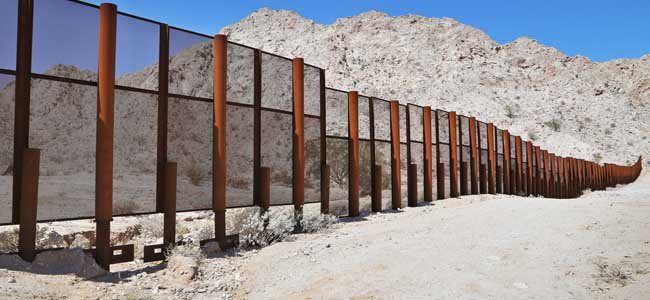Politics
United States set to feel more pain resulting from illegal immigration

Illegal immigration has long plagued American craftsman and has far-reaching implications that communities and federal, state and local governments have yet to realize, according to those who have worked in the construction industry.
“If you wait 20 years, you’re going to see what happens to all of these houses and buildings,” said Kevin Larsen, a veteran brick mason with 33 years of experience.
Larsen left his trade several years ago and now works at a railroad yard. He applauds the federal judge’s Feb. 16 decision to halt President Barack Obama’s executive order that protects as many as five million immigrants crossing the border illegally from deportation.
Larsen said the federal government should have taken tougher stance years ago. He is dismayed at the Obama administration’s reaction of continuing to prepare to accommodate the undocumented immigrants and the Department of Justice appealing the federal court’s order.
“If you’re illegal, it’s easy for you to hide everything because nothing is questioned by the administration or questioned by the government,” he said.
Meanwhile, millions have lost good jobs.
“I knew if I didn’t leave when I did that I wouldn’t be able to work at all,” Larsen said.
The former bricklayer said he recently talked with a long-time friend in New Orleans. His friend’s family owned the largest masonry company in the city. The company went out of business and his friend, who has 30 years’ experience, hasn’t worked in a year.
“He can’t get work. He is down to where all he has is electricity in his house. He had to sell his truck to pay the taxes on his house,” Larsen said.
According to Larsen, problems in New Orleans began after a large Hispanic population settled in the city after Hurricane Katrina. Hispanic workers, who had no experience in construction or brick masonry, began taking all the work and agreeing to work for as little as $5 an hour. No legitimate company could compete, especially on larger projects that require larger crews, he said.
Larsen said the same scenario is playing out in major cities across the country. In Atlanta, where he worked in construction, contractors started hiring no one but undocumented immigrants.
He said he was turned away from two jobs, a museum and a baseball stadium, with the foreman telling him they would only hire only Hispanic workers.
E-verify laws have done little to relieve the situation, he said. Construction companies have figured a way around them.
Larsen said an undocumented worker gives the contractor bogus identification, Social Security number and other papers. The employer sends it through E-verify, which gives the employer 90 days to work the employee before a decision is made.
When the E-verify is declined, the employer tells the undocumented worker to get proper papers to continue to work. Larsen said the worker buys more bogus papers and turns them in and the 90-day cycle begins again. He said this goes on indefinitely.
Larsen said contractors are starting to suffer as much as craftsmen now because illegal immigrants are figuring out ways to become the contractor instead of just maintaining worker jobs.
“If they have a brother or a cousin who is legal, they put the business in his name,” Larsen said.
He said contractors’ greed is now returning to hurt their livelihoods.
“They all thought they were going to get rich by hiring all the illegals. It’s biting them in the butt because the illegals are becoming contractors and now they can’t find work,” Larsen said.
He said buildings, which include many public buildings like schools and government administrative offices, built back in the 1980s and 1990s are already starting to deteriorate because the undocumented workers didn’t perform their jobs to fulfill basic standards.
Many of those flaws went undetected because of lax state laws regarding inspections.
One problem surfacing is the lack of wall ties, which affix bricks to the construction wall. All the bricks on Atlanta’s Olympic Village had to be replaced because of construction flaw, Larsen said.
Local governments owning these substandard buildings will end up paying for significant repairs, which will then fall on taxpayers, he said.
He attributes construction flaws to a lack of training and experience. Most undocumented workers have no knowledge of craftsman trades like brick masonry, carpentry, and drywall, he said.
“Brick laying is a craft. It’s an art. It’s not something you can teach someone in a short period of time. It’s a trade. You have to learn that trade,” he said.






